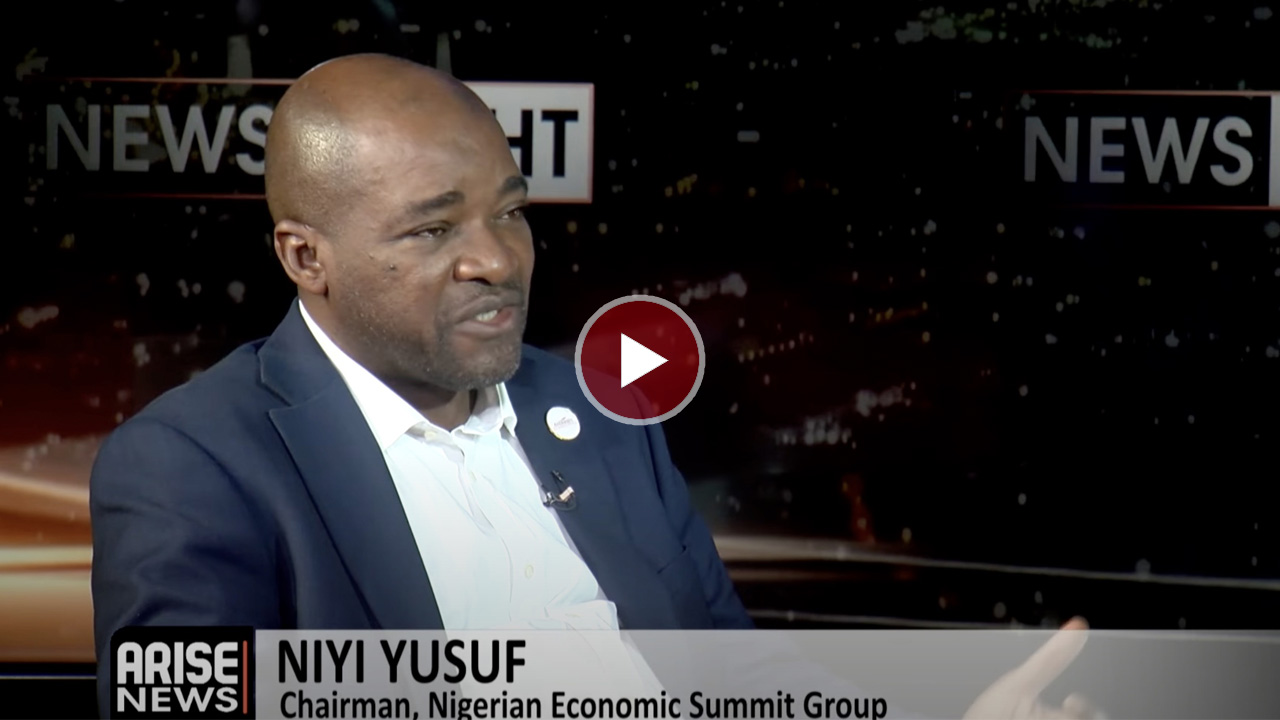

Chairman of the Nigerian Economic Summit Group (NESG), Niyi Yusuf, has called for an urgent, coordinated effort between government, the private sector, and academia to address Nigeria’s worsening unemployment crisis, warning that the country needs to create at least 4.5 million jobs annually to meet its economic needs by 2030.
Speaking in an interview with ARISE News on Wednesday, Yusuf said the recently launched NESG report was intended to “set the tone” for discussions on how to urgently tackle the challenge, noting that “2030 is only five and a half years away.”
According to him, “It’s important that all actors — state, federal, private sector, development partners, academia — work together to urgently address this situation. We need to look at the education system to ensure that after 6-3-3-4, we are producing graduates who are fit for purpose. That means the curriculum needs to be co-created and co-designed with the employers of labour in mind.”
He emphasised that addressing skills mismatch and teacher development must become top priorities. “You can only give what you have,” Yusuf said. “Today, we are talking about AI and the future of work. We’ve got to ensure our teachers are well-equipped to train our kids for tomorrow. It’s about curriculum, skills, and preparing teachers themselves.”
The NESG chairman also called for stronger collaboration between industry and academia, saying the current link between schools and the workplace is too weak. “That linkage needs to be strengthened. Internship schemes should be routine, not something done only in 200 or 300 level. The experience you gain in the industry complements what you are taught in the classroom — and the mentors and relationships you build will be useful when you start work.”
Yusuf stressed that while the private sector remains the main driver of job creation, it currently lacks the depth to absorb the millions of jobseekers Nigeria produces yearly. “The economy is big and diverse,”he explained.
“But all the hot areas — financial services, technology, oil and gas — employ less than 1.5% of the workforce. Yet that’s where most graduates want to go.”
He said greater attention must be paid to sectors with high employment potential such as agriculture, construction, solid minerals, real estate, food services, and retail trade.
“From a revenue point of view, it makes sense to focus on oil and gas, but from a jobs point of view, we must target areas like agriculture, construction, and restaurants where there is room for massive job creation.”
Yusuf explained that Nigeria’s job crisis is both a supply and demand problem. “The private sector itself is not big enough to employ millions,” he said.
“The biggest employer of labour in Nigeria today has about 30,000 to 35,000 workers. In factories in China or the US, that’s just one location.”
He continued: “We also need to make students job-ready. Today, most organisations hire graduates and spend six to nine months training them before they can work effectively. That’s extra cost and time. If schools work with the private sector to co-develop job-ready curricula and involve industry executives in teaching, graduates will be ready for work.”
On concerns that NESG’s recommendations may end up as another policy document, Yusuf acknowledged that implementation takes time but noted progress in recent reforms.
”There is always a time lag between policy discussion, government acceptance, implementation, and results,” he said.
“But a good example is the tax reform we advocated at last year’s summit — those bills have now become law. That’s progress.”
He revealed that the NESG is already taking concrete steps to translate its latest recommendations into action. “We are working with the National Universities Commission (NUC) through a triple-helix roundtable involving the NUC, academia, and private sector — to co-create a new undergraduate curriculum that is more fit for purpose,”he said.
“We’ll also work with our private sector members, who are employers of labour, to disseminate this report and secure their commitment to creating jobs and supporting government initiatives. My expectation is that in a few years, we’ll begin to see the impact,”he concluded.
Boluwatife Enome



